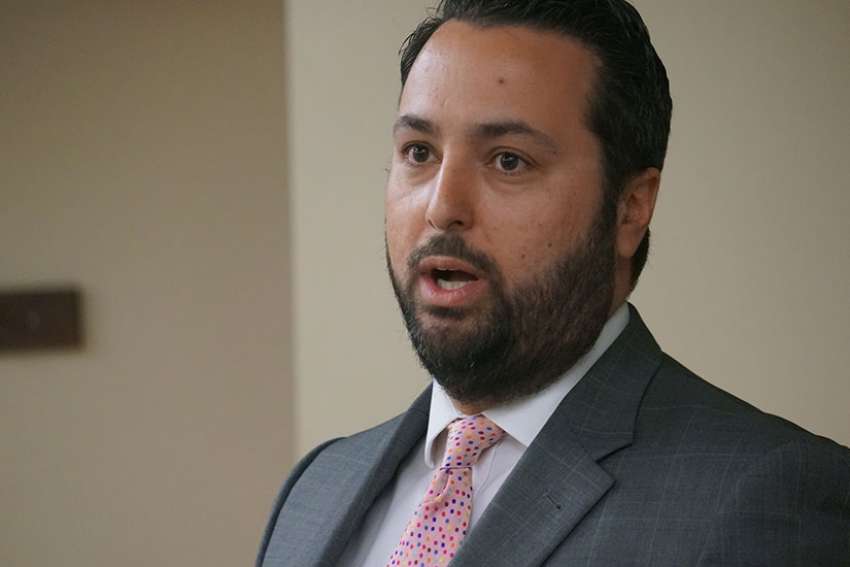The Supreme Court did not “create a right” to euthanasia or assisted suicide in its 2015 Carter ruling on assisted suicide, it “merely struck down” the law against assisted suicide in the Criminal Code, said Albertos Polizogopoulos.
“The Charter is binding on the College (of Physicians and Surgeons of Ontario) and it protects physicians,” said the Ottawa lawyer.
Polizogopoulos spoke at a debate on physicians’ conscience rights held Mar. 16 at the University of Ottawa’s law school. He is representing five Ontario doctors who are challenging a College of Physicians and Surgeons of Ontario policy that compels effective referral on procedures such as abortion and euthanasia.
Conscience rights are protected by the Charter, whereas patients have no Charter right to receive a particular drug or procedure from a particular doctor, said Polizogopoulos. He said conscience rights are clearly protected under Section 2(a) of the Canadian Charter of Rights and Freedoms.
On the other side, Ricardo Smalling argued that physicians’ conscience rights must be balanced with the rights of patients who are “seeking care” in their “weakest” moments.
Smalling, a lawyer who acts as Senior Contracts Negotiator at Queen’s University, argued physicians’ conscience rights must be balanced with the rights of patients who are “seeking care” in their “weakest” moments. He said eliminating conscientious objection “is the only way to ensure there is a predictable framework that guarantees a patients’ health care.”
Physicians have a right to their religious beliefs but they should know that if abortion or “medical aid in dying” is legal, they “may be required by the state to do these services,” he said.
“If you join and then decide, ‘I will not do it,’ that is unreasonable and should not be accommodated,” Smalling said. He acknowledged it may be reasonable to grandfather in doctors who were licensed before euthanasia and assisted suicide became legal.
Physicians who deny a patient’s request on conscience grounds means “patients are not getting the care they are also entitled do under [the Charter’s] Section 2(a) rights” and “now have the views of the physician imposed on them.”
In any job environment, an employee doesn’t “tell the boss, ‘Sorry, I’m not doing this today,’” Smalling said.
Both legal experts referred to the Oakes Test as a way of examining whether a limit to a Charter right is “reasonably and demonstrably justified.”
The Oakes Test, from a 1986 Supreme Court Case R vs. Oakes, says the limit must be “fair and not arbitrary” and “rationally connected to that objective,” limit the impairment as much as possible, and be proportional to the objective.
Polizogopoulos said the measures by the College to limit physicians’ conscience rights fail the Oakes Test because there is “no pressing and substantial reason” for the policy.
“[Smalling] cannot point you to one case prior to this policy where somebody’s access to a particular procedure was impeded,” he said.
Smalling, however, argued the College must consider the rights of all the parties.
The rights of the physicians are minimally impaired because he or she “has the right to all their beliefs; they can go to church and manifest their beliefs,” he said. All that’s being asked is “for those hours when you are at work, you don’t manifest them. To me, that’s minimum impairment.”
It’s “not saying to the physician ‘you don’t have the right to hold those views— I’m not forcing you — I’m going to give you a choice do it, or change your specialty or leave the profession.”
The Charter exists to protect people from coercion, from being compelled to take a course of action, Polizogopoulos said, noting he does not do family law, criminal law or real estate. He said he has no moral objections to them, but should he be forced to practice real estate law?


